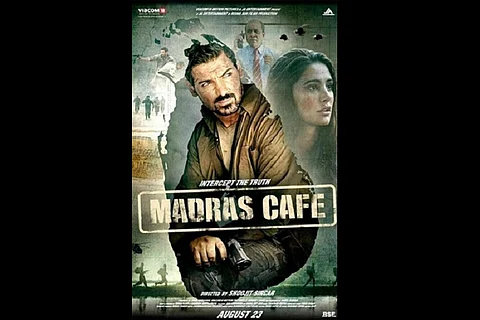

As France was reeling from the deaths of 84 people at the Bastille Day festivities in Nice, millions of others around the world were obsessed with the augmented reality app Pokémon Go.
It may seem insensitive to mention these two events in the same sentence and I am in no way drawing any kind of equivalence. But they do both challenge us, in different ways, to think about our augmented realities. They both tell us something about the global public imagination.
Increasingly, our experience of the “real” is an augmented or mediated one that integrates digital streams with everyday interactions. We are part of one another in increasingly large scale, mediated ways. From Montreal to Mexico to Brisbane, cities all over the world lit their buildings in red, white and blue as a sign of solidarity with the victims of Nice. They also, of course, took their grief to social media.
But Brexit, and the popularity of politicians such as Pauline Hanson and Donald Trump also tell us that any emerging sense of global solidarity is complex and fractious. This sense that we are at the mercy of a staggering series of tragedies was expressed by a series of responses to the hashtag #2016InThreeWords.
Even before Nice, this feeling of being overwhelmed following Orlando and other shootings in the US and the assassination of Jo Cox in the UK was expressed on Twitter when YouTube comedian Matt Oswalt tweeted: “Is Quentin Tarantino directing 2016?” More than 16,000 people retweeted his question.
is Quentin Tarantino directing 2016?
— Matt Oswalt (@MattOswaltVA) July 8, 2016
That the horror of real world events is somehow cinematic or film-like has become a popular way of expressing the uneasy coexistence of both disbelief and a sense of these events' absolute normality.
In the weeks before the attack in Nice, posters across France had advertised the new Idris Elba action thriller Bastille Day with the eerie slogan:
This year they will become the fireworks.
In the film, which has been described by critics as a “competent popcorn-flavoured thriller” with some great chase scenes, Elba plays a macho CIA agent who has to work against the clock and his superiors to avert a terror attack on France’s national holiday.
The film had been released earlier in the year elsewhere. But it was deliberately held back in France (where it was co-produced), and released last Wednesday to coincide with the Bastille Day holiday. Immediately after the attacks, its distributors withdrew the film from release (and the posters). In March, meanwhile, following the Brussels attacks, Sky Atlantic delayed the release of the second season of the TV series The Tunnel because of its terror theme.
This is not the first time that a film’s release has been suspended in the wake of a terror attack. Forty-five films were cancelled, rescheduled or altered in the months following the September 11 attacks. The Arnold Schwarzenegger vehicle Collateral Damage, which featured a graphic bomb assault orchestrated by Colombian terrorists, was delayed for months. The Quiet American, which traced CIA seeded terrorist attacks on civilians in Vietnam, was held back for over 12 months.
Black Hawk Down, on the other hand suited the post 9/11 patriotic zeitgeist. A film about American military heroism and mateship, set against the tragedy of Somali genocide, it was rushed into cinemas ahead of schedule.
Bush sent his chief lieutenant Karl Rove to meet with Hollywood executives after 9/11 to discuss ways in which the administration and the film industry could work together around what a White House spokesman called:
the themes the government is emphasizing, including tolerance, courage and patriotism.
But far from Hollywood helping, some critics, including the filmmaker Robert Altman, blamed Hollywood for the terror attacks. He feared life was imitating art:
The movies set the pattern, and these people have copied the movies … How dare we continue to show this kind of mass destruction in movies? I just believe we created this atmosphere and taught them how to do it.
Idris Elba was at pains after the Nice attack to not only offer his heartfelt solidarity to victims but also distance himself from the kind of attitude Altman expressed. Elba emphasized that the film had been made two years previously, stressing that there was “no sort of correlation” between the events in Nice and the scenario in his film.
While producers and stars become very sensitive in the immediate aftermath of terror attacks, terror has actually become a standard trope in television and film post 9/11.
24’s Jack Bauer and his successor Homeland’s Carrie Mathison are the most famous examples. But 2013, for instance, produced two almost identical films about attacks on the White House: White House Down and Olympus Has Fallen.
This year White House Down producers have followed up with London has Fallen. Then there’s Bourne. And Bond.
Still, the connection between terrifying violence and film is much more complex than one of either reckless inspiration or patriotic bulwark.
Jack Bauer, for example, was blamed for normalising torture and thus buttressing the Bush administration, but 24 also featured a series of ever more byzantine conspiracies that critiqued relationships between the White House, the oil industry and international terrorists.
In our highly mediated world, reality is augmented constantly. We are receiving streams of information and images that invite us into unexpected parallel worlds and we often struggle to make sense of them. Which is why we resort to easy proxies for solidarity, like hashtags, or quick solutions, like suspending films.
But we respond emotionally to both fictional narratives and media streams of world events in a complex range of ways. They can cause fear and anxiety but they also intensify our life, prompt reflection and allow for the development of empathy.
Marcus O'Donnell, Associate Professor, Director of Digital Learning, Deakin University
This article was originally published on The Conversation. Read the original article.